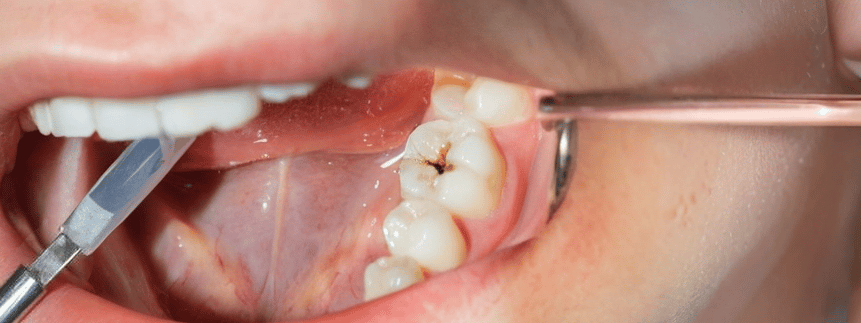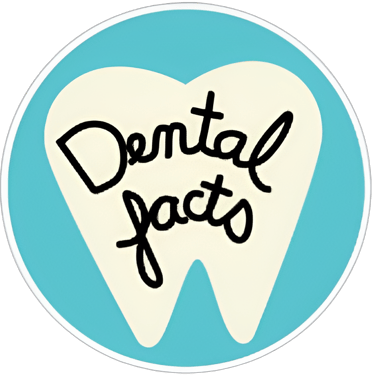Do I Have Cavities?
Tooth decay can develop without obvious symptoms, but signs such as sensitivity to cold, pain, or dark spots on your teeth may indicate its presence. Maintain good oral hygiene and limit your sugar intake to help prevent cavities. If you suspect a problem, visit your dentist for proper diagnosis and treatment. Taking care of your smile is taking care of your health!
Tooth decay can develop without obvious symptoms, but signs such as sensitivity to cold, pain, or dark spots on your teeth may indicate its presence. Maintain good oral hygiene and limit your sugar intake to help prevent cavities. If you suspect a problem, visit your dentist for proper diagnosis and treatment. Taking care of your smile is taking care of your health!
1/5/2024・4 min read




Dental cavities are one of the most common oral health conditions, affecting millions of people worldwide. This disease is caused by bacteria that break down the hard tissues of the teeth. But how can you know if your teeth are affected by cavities?
In some cases, cavities may be asymptomatic, which means you won’t notice any obvious signs. However, in other cases, there can be clear warning signals. One of the most common symptoms is pain, especially when consuming cold or sweet foods and drinks. If you experience dental sensitivity, there’s a good chance you may have a cavity.
Another sign of cavities is the appearance of dark brown or black spots on the surface of the affected tooth. This discoloration can often be seen with the naked eye and indicates that the decay has advanced enough to compromise the enamel.
If you suspect you may have a cavity, it’s important to see a dentist as soon as possible. A dental professional can examine your teeth and provide an accurate diagnosis. Your dentist may also take X-rays to detect cavities that are not visible during a regular exam.
Prevention is key when it comes to tooth decay. Practicing good oral hygiene is essential to stop cavities from developing. Be sure to brush your teeth at least twice a day using fluoride toothpaste. It’s also important to floss daily to remove plaque and food particles that accumulate between your teeth.
In addition to daily oral care, limiting your intake of sugary foods and drinks is highly recommended. Sugars and fermentable carbohydrates are the main fuel for the bacteria that cause tooth decay. By reducing your sugar consumption, you can lower your risk of developing cavities.
If you already have a cavity, treatment will depend on how advanced it is. For small cavities, your dentist may restore the tooth with a dental filling. If the decay has caused more extensive damage, root canal therapy may be necessary—and in severe cases, extraction of the affected tooth might be required.
In summary, tooth decay is a common condition that can affect anyone. If you suspect you have a cavity, it’s important to see your dentist for an accurate diagnosis and appropriate treatment. Remember to maintain good oral hygiene and limit sugary foods to keep your teeth healthy and cavity-free.




Dental cavities are one of the most common oral health conditions, affecting millions of people worldwide. This disease is caused by bacteria that break down the hard tissues of the teeth. But how can you know if your teeth are affected by cavities?
In some cases, cavities may be asymptomatic, which means you won’t notice any obvious signs. However, in other cases, there can be clear warning signals. One of the most common symptoms is pain, especially when consuming cold or sweet foods and drinks. If you experience dental sensitivity, there’s a good chance you may have a cavity.
Another sign of cavities is the appearance of dark brown or black spots on the surface of the affected tooth. This discoloration can often be seen with the naked eye and indicates that the decay has advanced enough to compromise the enamel.
If you suspect you may have a cavity, it’s important to see a dentist as soon as possible. A dental professional can examine your teeth and provide an accurate diagnosis. Your dentist may also take X-rays to detect cavities that are not visible during a regular exam.
Prevention is key when it comes to tooth decay. Practicing good oral hygiene is essential to stop cavities from developing. Be sure to brush your teeth at least twice a day using fluoride toothpaste. It’s also important to floss daily to remove plaque and food particles that accumulate between your teeth.
In addition to daily oral care, limiting your intake of sugary foods and drinks is highly recommended. Sugars and fermentable carbohydrates are the main fuel for the bacteria that cause tooth decay. By reducing your sugar consumption, you can lower your risk of developing cavities.
If you already have a cavity, treatment will depend on how advanced it is. For small cavities, your dentist may restore the tooth with a dental filling. If the decay has caused more extensive damage, root canal therapy may be necessary—and in severe cases, extraction of the affected tooth might be required.
In summary, tooth decay is a common condition that can affect anyone. If you suspect you have a cavity, it’s important to see your dentist for an accurate diagnosis and appropriate treatment. Remember to maintain good oral hygiene and limit sugary foods to keep your teeth healthy and cavity-free.



